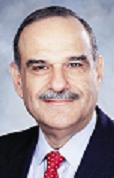A New Orleans like the old one just won't do ...
Haya (2005) suggests that "The flooding of New Orleans and the dislocation of almost a half-million residents exposed social inequities that have plagued the city for decades: extreme poverty, a wide income divide between blacks and whites, high unemployment and crime, woeful schools."
"Many urban policy specialists say rebuilding New Orleans could represent a grand social experiment: building a predominantly black American city in a way that breaks up concentrated poverty, improves public schools and creates jobs."
"This may be the first American city built in the 21st century," says Larry Davis, director of the University of Pittsburgh's Center on Race and Social Problems. "New Orleans has the opportunity to be a model for the country. ... Here's our chance."
"If we're going to try to recreate the city, why not do it right?" says David Gladstone, assistant professor at the college of urban and public affairs at the University of New Orleans. He escaped Katrina and is living with family in New Jersey. "Why rebuild it the way it was? New Orleans was a dangerous city even before the hurricane hit."
Haya adds "A blueprint for a new city will not emerge until the water is drained and exhaustive environmental testing is done to determine whether it's safe for people to move back. Levees must be redesigned to protect against future flooding. Some neighborhoods may never be deemed safe enough to redevelop."
Any rebuilding plan will have to meet one overriding challenge: Where will the poor go?
Dealing with poverty
New Orleans has the highest poverty rate among large cities in the U.S. Based on 2000 Census data. 27.9% of its citizens live in poverty, more than twice the U.S. rate of 12.4%
New Orleans will probably be a much smaller city for years to come. Whatever size it becomes, the focus has to be on reducing economic segregation and poverty, Gladstone says.
"We have to make sure that affordable housing is available in all neighborhoods and not put them back where they were before," says Amy Liu, deputy director of the Metropolitan Policy Program at the Brookings Institution.
Next time: "What can be done?"
El Nasser, Haya “A New Orleans like the old one just won't do” USA TODAY September 18, 2005
"Many urban policy specialists say rebuilding New Orleans could represent a grand social experiment: building a predominantly black American city in a way that breaks up concentrated poverty, improves public schools and creates jobs."
"This may be the first American city built in the 21st century," says Larry Davis, director of the University of Pittsburgh's Center on Race and Social Problems. "New Orleans has the opportunity to be a model for the country. ... Here's our chance."
"If we're going to try to recreate the city, why not do it right?" says David Gladstone, assistant professor at the college of urban and public affairs at the University of New Orleans. He escaped Katrina and is living with family in New Jersey. "Why rebuild it the way it was? New Orleans was a dangerous city even before the hurricane hit."
Haya adds "A blueprint for a new city will not emerge until the water is drained and exhaustive environmental testing is done to determine whether it's safe for people to move back. Levees must be redesigned to protect against future flooding. Some neighborhoods may never be deemed safe enough to redevelop."
Any rebuilding plan will have to meet one overriding challenge: Where will the poor go?
Dealing with poverty
New Orleans has the highest poverty rate among large cities in the U.S. Based on 2000 Census data. 27.9% of its citizens live in poverty, more than twice the U.S. rate of 12.4%
New Orleans will probably be a much smaller city for years to come. Whatever size it becomes, the focus has to be on reducing economic segregation and poverty, Gladstone says.
"We have to make sure that affordable housing is available in all neighborhoods and not put them back where they were before," says Amy Liu, deputy director of the Metropolitan Policy Program at the Brookings Institution.
Next time: "What can be done?"
El Nasser, Haya “A New Orleans like the old one just won't do” USA TODAY September 18, 2005





0 Comments:
Post a Comment
<< Home